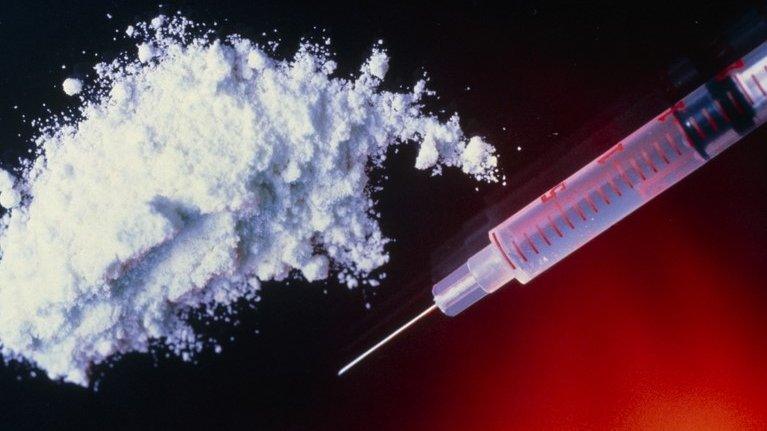Legalising cannabis: What you need to know
- Published
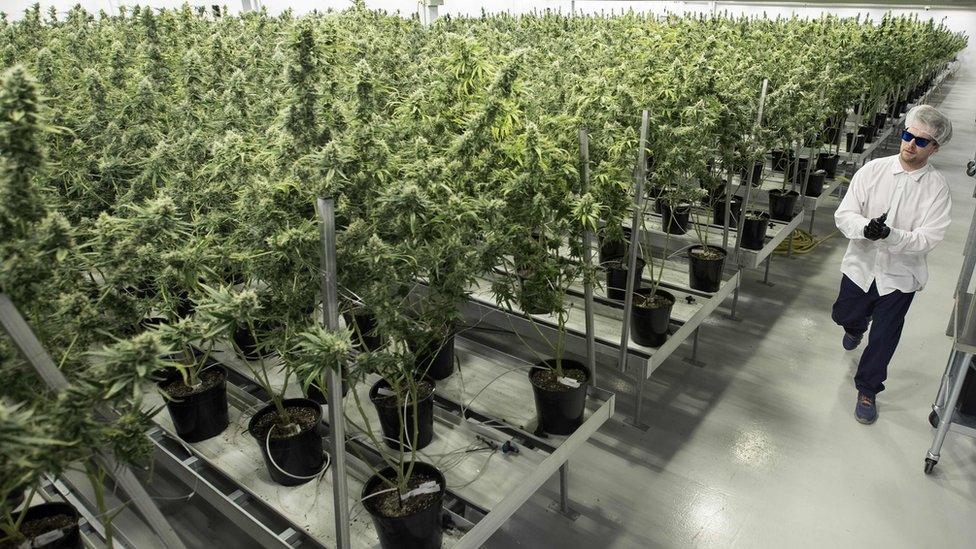
The government has said it will review the medicinal use of cannabis
The government has said it will review the use of medicinal cannabis, although recreational usage will still be illegal.
What is cannabis?
Cannabis is the most widely-used illegal drug in Britain, according to drugs advice service Frank, external.
It comes from the cannabis plant and contains tetrahydrocannabinol (THC), which affects the mind and mood.
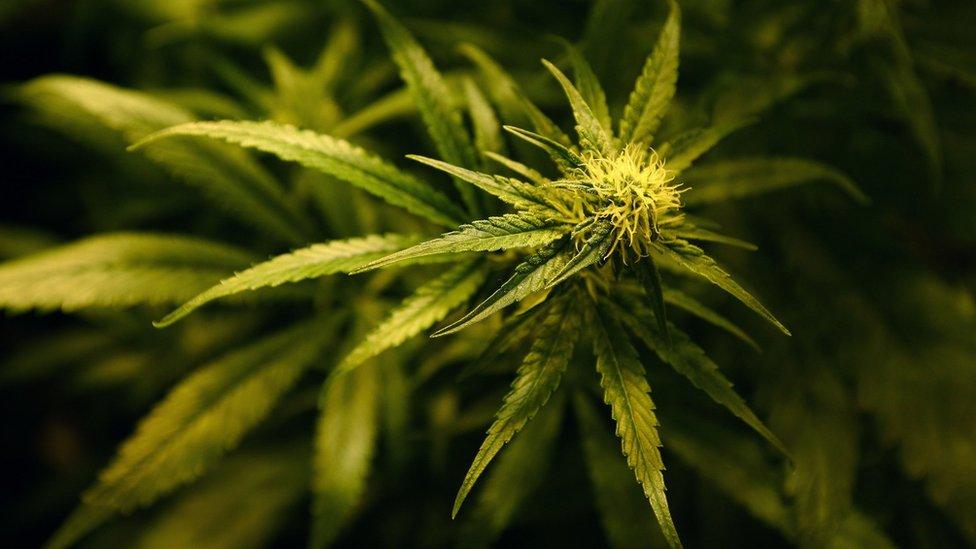
Cannabis comes from the cannabis plant
The THC can give users a "chilled out" feeling but it can also cause hallucinations and make people feel paranoid and panicked.
It is normally smoked but can also be eaten and comes in three main forms:
Hash - a lump of resin
Marijuana - the dried leaves and flowering parts of the female plant
Oil - a thick honey-like substance
What does the law say?
Cannabis is a class B drug, external meaning it it is illegal to possess.
Anyone found with the drug could be imprisoned for up to five years while supplying it can be punished with a 14-year jail sentence or an unlimited fine.
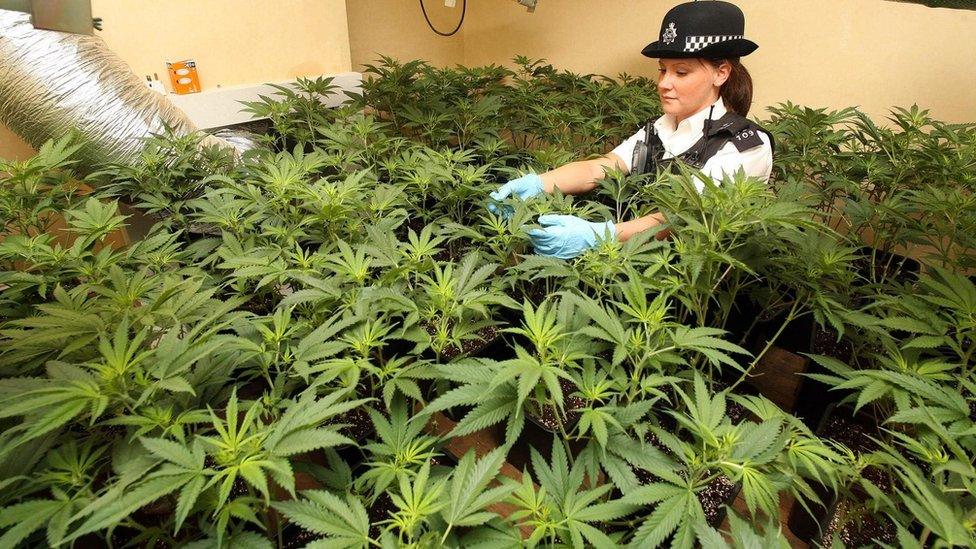
Supplying cannabis can lead to a 14-year jail term or unlimited fine
The penalty depends on the amount of the drug, the person's criminal history and other aggravating or mitigating factors.
Police can also issue a warning or an on-the-spot fine of £90 to someone found with cannabis.
Alternatively, officers could issue a cannabis warning which goes on a person's record but is not revealed by a standard criminal records check.
Of the 16,101 convictions for cannabis possession in the UK in 2016, 292 were jailed.
The legality of recreational use is not up for debate, the government has said.
What is medicinal cannabis?
Cannabis also contains cannabidiol (CBD) which scientists are investigating as a medical treatment.
CBD-based treatments have shown some promising results for reducing seizures in children with severe epilepsies.
Medical trials have largely focused on pharmacological preparations, but some parents of children with epilepsy have been buying oils containing CBD and THC.
The mother of 12-year-old Billy Caldwell has reignited the debate about legalising the drug after saying it helps calm her son's seizures caused by severe epilepsy.
Charlotte Caldwell, from County Tyrone, had been to Canada to buy her son cannabis oil but it was confiscated upon her return to the UK.
The Home Office then returned the drug to Ms Caldwell and her son, who had been admitted to hospital, under a special 20-day licence.
Cannabis oil row: Mother calls for drug to be legalised
There is currently little scientific evidence on the safety and effectiveness of these oils as a treatment for epilepsy, although they do contain the same active ingredients.
Meanwhile, Sativex, a cannabis-based spray, has been able to be legally prescribed since 2006.
It is licensed to treat muscle stiffness and spasms in people with multiple sclerosis and although it is available throughout the UK, only in Wales can it be got for free on the NHS.
Doctors could, in theory, prescribe it for other things outside of this licence, but at their own risk.
Another licensed treatment is Nabilone.
It contains an artificial version of THC and can be given to cancer patients to help relieve nausea during chemotherapy.
What are the effects of cannabis?
Regular recreational cannabis use increases the risk of developing a psychotic illness, such as schizophrenia, according to the NHS, external.
This risk is higher if it is used by teenagers and younger people as the drug interferes with development of the still-growing brain.
Long-term use can also affect the ability to learn and concentrate.
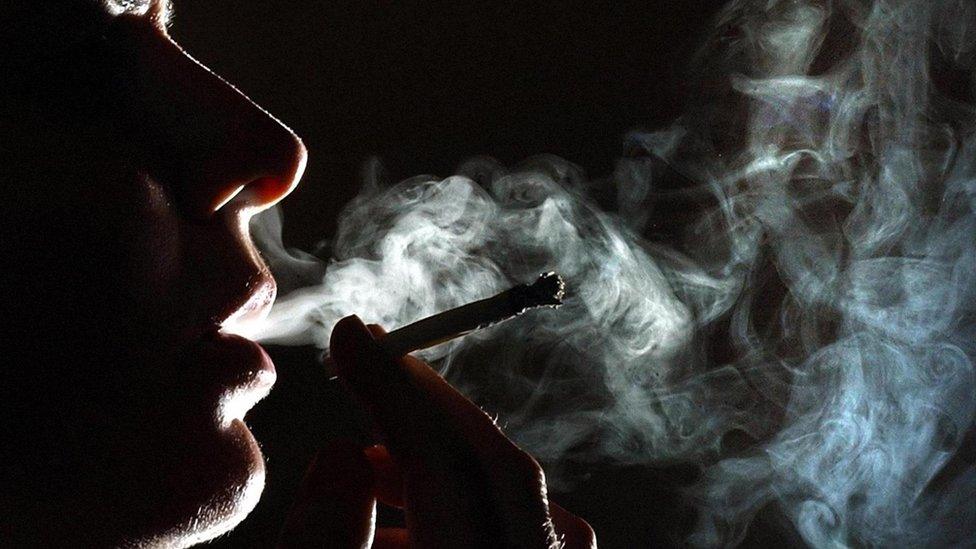
Recreational cannabis is often smoked
Effects of using the drug can include a feeling of happiness and relaxation but it can also make users feel sick, faint and sleepy and cause memory loss.
About 10% of regular users of cannabis become addicted to the drug, the NHS said.
Withdrawal symptoms can include mood swings, restlessness and difficulty sleeping.
In recent years, various stronger types of cannabis, grown for their higher concentration of the main active ingredient THC have invaded the street market.
It's argued that cannabis with high levels of THC can lead to people developing psychiatric issues.
According to the Royal College of Psychiatrists, there is sufficient evidence to show that people who use cannabis, particularly at a younger age, such as around the age of 15, have a higher than average risk of developing a psychotic illness, including schizophrenia or bipolar disorder.
The two-part government review will be looking at how cannabis-based treatments will work.
Firstly, it will make recommendations on which cannabis-based medicines might offer real medical and therapeutic benefits to patients.
In the second part, the Advisory Council on the Misuse of Drugs will consider whether changes should be made to the classification of these products after assessing "the balance of harms and public health needs".
Why are some calling for a law change?
More than 25,000 people signed a recent petition, external calling on the government to legalise cannabis for both recreational and medicinal uses.
The petition's founders said banning the drug failed to reduce its use and it was "hypocritical" of the government to allow the sale of alcohol and tobacco but not cannabis.
They also said selling the drug in licensed shops would limit the access of young people to cannabis and also regulate the THC level.
The campaigners said cannabis has "shown promise" in reducing seizures and "is far safer" than other painkillers.
It has also been argued that licensing and selling cannabis could net up to £3.5bn for the government, external.
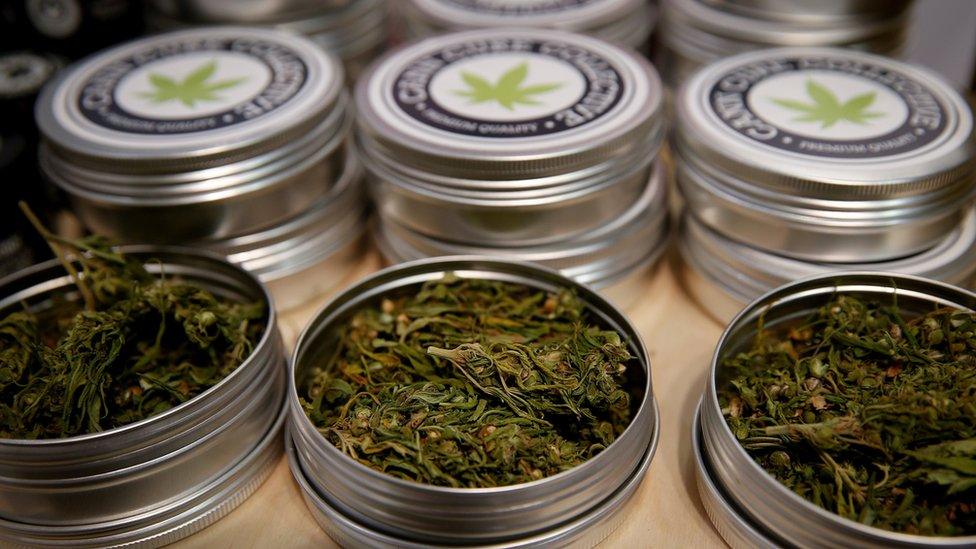
Campaigners want cannabis legalised in the UK
The government said fully-tested medicinal cannabis products can already be licensed for sale in the UK, such as Sativex, and it is open to further applications.
Former Conservative leader Lord Hague has called for a "decisive change" in the law on cannabis saying "any war" against the drug had been "irreversibly lost".
Writing in the Daily Telegraph, external, he said said the case of Billy Caldwell was an "illuminating moment" which revealed government policy to be "inappropriate, ineffective and utterly out of date".
In response, the government said, external it had "no intention" of reviewing cannabis' classification.
It said: "There is strong scientific and medical evidence that cannabis is a harmful drug which can be detrimental to people's mental and physical health."
It added that any debate about the medicinal benefits of cannabis-based medicines did not extend to illicit possession.
What do other countries do?
Many other countries, including much of the US, Germany, Italy and the Netherlands, have legalised the use of medicinal cannabis.
On Monday, Canada's House of Commons voted to legalise recreational cannabis. , external
Uruguay legalised the recreational use of cannabis in 2013 with people allowed to grow up to six plants at home for personal use.
In Spain, it is legal to use cannabis in private places and cultivate plants for personal use.
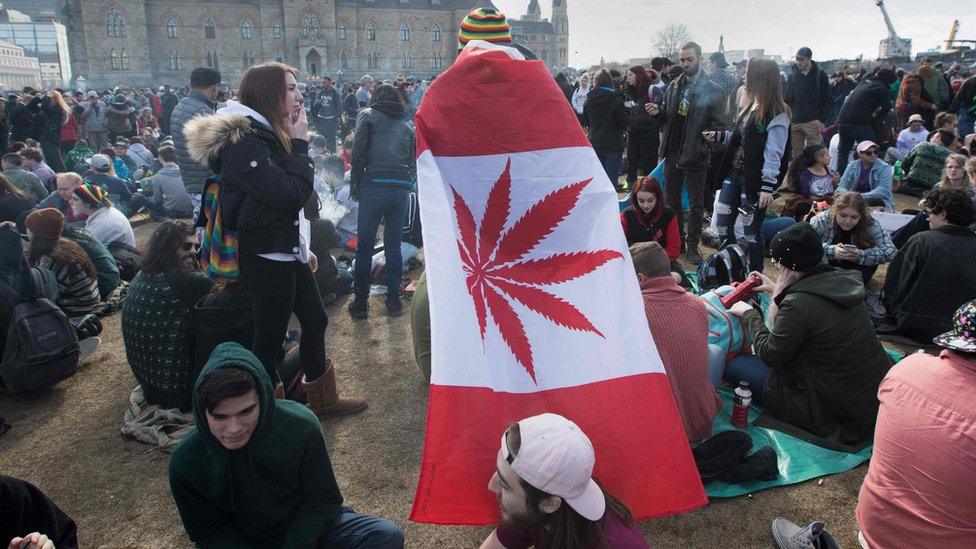
Canada's House of Commons has just voted to legalise cannabis
Cannabis use in the Netherlands is technically illegal but possession of up to 5g (0.2oz) for personal use is decriminalised, although police can confiscate the drug.
Use is accepted at certain coffee shops.
Recreational use is also decriminalised in several other countries, including Australia, Brazil, Colombia, Jamaica and Luxembourg.
- Published19 June 2018
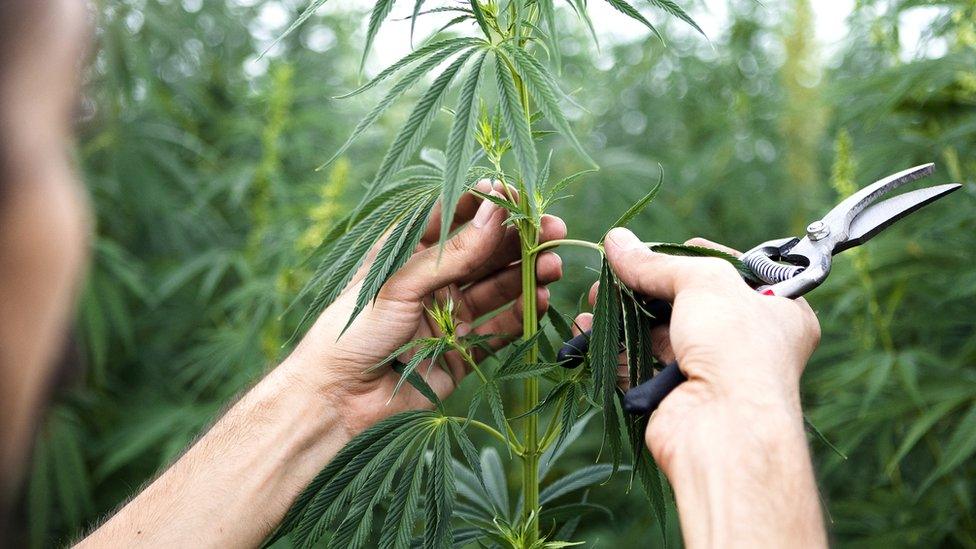
- Published23 May 2018
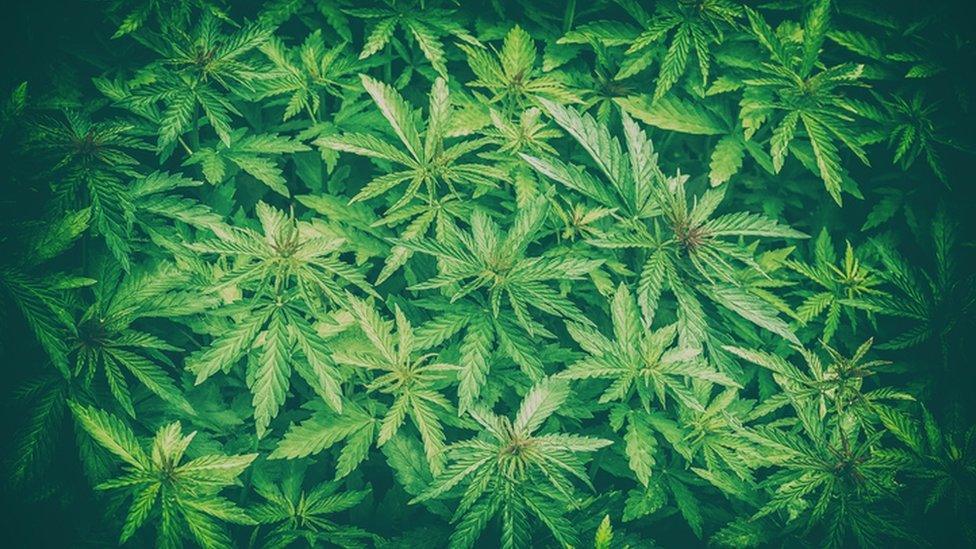
- Published5 September 2013
